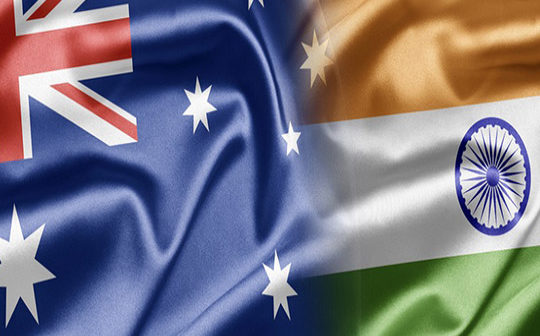
By Sarosh Bana, Mumbai Correspondent.
Elevating the India-Australia partnership to new heights has been the Australia-India Framework Arrangement on Cyber and Cyber-Enabled Critical Technology Cooperation under the Comprehensive Strategic Partnership between the two countries.
Cyber security concerns have acquired geopolitical significance, and mutual cybersecurity is at the core of the relationship between these Indo-Pacific powers that are, with the United States and Japan, partners in the Quad, or Quadrilateral Dialogue, coalition. The Quad’s commitment to “a free and open Indo-Pacific through practical cooperation on diverse 21st-century challenges” is a euphemism for containing China’s regional and global overreach.
Both New Delhi and Canberra have condemned “attempts to use cyberspace and cyber-enabled technologies to undermine international peace and stability” – an oblique reference to the threat China holds out in this regard – while reaffirming their commitment to “an open, secure, free, accessible, stable, peaceful, and interoperable cyberspace and technologies that adhere to international law”.
Indeed, as it enlarges its role in the Indo-Pacific, Australia has been anxious to bolster its defences, especially its cybersecurity. Consequently, while cybersecurity had hitherto come under the ambit of the Home Affairs Ministry, the labour government of Anthony Albanese has deemed it opportune to create a separate Ministry dedicated to cybersecurity, with 42-year-old Clare O’Neil being recently appointed the Minister for Home Affairs and Minister for Cyber Security.
Progress with the Australia-India framework arrangement on cybersecurity was assessed by the inaugural Joint Working Group on Cyber Security Cooperation, which met in June 2021, and at the Fourth Australia-India Bilateral Cyber Policy Dialogue, held a month later. There has also been exchange of views between Secretaries responsible for telecommunications from both countries who participated in the inaugural Joint Working Group on Information Communication Technologies in March 2022.
A month earlier, India’s Minister for External Affairs, Dr. S. Jaishankar, was welcomed by Australia’s Minister for Women, Marise Payne, to Melbourne for the Foreign Ministers’ Framework Dialogue and the inaugural India-Australia Foreign Ministers’ Cyber Framework Dialogue on 12 February 2022.
Both Ministers recognised cooperation in the areas of cyber governance, cyber security, capacity building, innovation, digital economy, and cyber and critical technologies as an essential pillar of the India-Australia relationship. In this respect, the Centre of Excellence for Critical and Emerging Technology Policy, to be located in Bengaluru, in India, demonstrates both countries’ long-term commitment to bilateral cooperation in cyber and critical technologies. Underlining this commitment is the Albanese Government’s proposal to open a Consulate-General in Bengaluru.
Ministers Jaishankar and Payne reaffirmed their commitment to an open, secure, free, accessible, stable, peaceful, and interoperable cyberspace and technologies that adhere to international law. They agreed that the manner in which technology is designed, developed, governed and used should be informed by shared democratic values and respect for human rights.
Both the countries have also committed to strengthen mutual cooperation in various multilateral fora, including the United Nations, in developing international standards, norms and frameworks for cyberspace and critical and emerging technologies, including through the International Telecommunications Union, and the Ad Hoc Committee to Elaborate a Comprehensive International Convention on Countering the Use of Information and Communications Technologies for Criminal Purposes. They reiterated the importance of diversity, gender equality and women’s empowerment in the design, development and use of cyberspace and technologies.
Implicit in this bilateral engagement will be to address the significant threat of malicious cyber activity by state and non-state actors, to acknowledge the importance of the security and resilience of telecommunications networks, and to protect next generation telecommunications networks, including 5G and 6G.
“In an increasingly digital world with sophisticated cyber threats, we recognise an urgent need to take a collective approach to enhancing cybersecurity,” Jaishankar and Payne noted in their joint statement. “We commit to improving the defence of our nations’ critical infrastructure by sharing threat information, identifying and evaluating potential risks in supply chains for digitally-enabled products and services, and aligning baseline software security standards for government procurement, leveraging our collective purchasing power to improve the broader software development ecosystem so that all users can benefit.”
Building cyber resilience is also a core focus of the Quad, which is committed to deliver on its vision for a “free and open Indo-Pacific that is inclusive and resilient”. Intent on mobilising a demonstrable response to address systemic cybersecurity challenges and reinforce cybersecurity as a key strategic priority, the Quad leadership has pledged to coordinate capacity-building programmes in the Indo-Pacific region under the Quad Cybersecurity Partnership.





